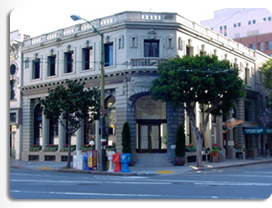Disability Discrimination
San Francisco Disability Discrimination Attorneys
People with disabilities are still at times victim to discrimination in the workplace. Both the Federal Americans with Disabilities Act (“ADA”) and California’s Fair Employment and Housing Act (“FEHA”) protect qualified people with disabilities against discrimination. If you have a disability discrimination claim, you may be able to recover damages. Both the Federal ADA and California’s FEHA require employers to make reasonable accommodations to allow disabled people to perform a job’s essential functions.
What is Disability Discrimination?
It is unlawful to discriminate against qualified persons with disabilities in almost all aspects of employment, including hiring, firing, job applications, interviews, promotions, compensation, benefits, training, as well as other terms of employment. The law also protects individuals who are perceived to have either a physical or mental disability but who are not in fact disabled.
Types of Disabilities Covered under the ADA or the FEHA
Generally covered disabilities must be long term or permanent. Short term disabilities are usually covered under the Federal Family Leave Act or the California Family Rights Act. A disability under the ADA or FEHA is generally a condition which limits a person’s ability to engage in major life activities such as walking, working, seeing, speaking, breathing or taking care of one’s self. It can be mental condition, such as mental illness, depression, a learning disability or a developmental disorder, or a physical condition such as a paralysis or other mobility problems, vision or hearing problems, illness such as diabetes, heart disease or HIV or AIDS.
An Employer’s Duty to the Disabled in California
An employer is required to make reasonable accommodations to allow an employee with a disability to perform a position’s essential functions – unless the employer can show that doing so would create an undue hardship (i.e., significant cost or difficulty).
A reasonable accommodation might involve any of the following:
- job restructuring, such as having another employee carry heavy items for a worker with back pain
- adjusted work schedules to accommodate therapy sessions or medical appointments
- purchasing new equipment, such as special chairs
- building ramps or wider doors to make them wheel chair accessible
Elements of a Claim for Disability Discrimination
There are three basic elements to a claim for disability discrimination in California:
- the plaintiff was discriminated against because of his or her disability
- the plaintiff must be capable of performing the essential functions of a job with (or without) reasonable accommodation
- the plaintiff was discriminated against because of his or her disability
If you think you have been the victim of discrimination, or been denied accommodation as a result of a disability, you should contact an experienced disability rights attorney who can evaluate your claim and advise you of your rights.
Our law firm is extremely experienced in the laws of disability discrimination, and has successfully represented numerous individuals in disability discrimination cases and retaliation cases against their employers, under both Federal and California law.


